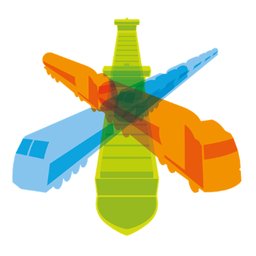النتائج لـ:
projectshardware manager
600+ الوظائف
Private House Manager/ Household Manager
Dubai, دبي
They manage day-to-day operations, staff, budgets, and various household tasks, ensuring the home functions seamlessly. Key...
منذ 3 أسابيع
Program Manager - Seller health, Program Manager - Seller Risk
 Amazon.com
Amazon.com
Dubai, دبي
- 5+ years of driving end to end delivery, and communicating...
- 5+ years of driving process improvements experience...
منذ 3 أسابيع
Program Manager - Seller health, Program Manager - Seller Risk
 Amazon.com
Amazon.com
Dubai, دبي
- 5+ years of driving end to end delivery, and communicating...
- 5+ years of driving process improvements experience...
منذ 3 أسابيع
Immigration Sales Manager – (2+ years' Experience in Immigration Industry Manager Level)
Dubai, دبي
د.إ. 5,000 - د.إ. 6,000 في الشهر
- Manage and supervise the daily operations of the immigration...
- Set individual and team targets and ensure consistent...
منذ أسبوعين
Relationship Manager / Senior Relationship Manager (Business Banking) - Dubai
 High Street Resources
High Street Resources
Dubai, دبي
- Ensure compliance of all bank’s policies and procedures
- Build relationship based portfolio and cover all banking...
منذ أسبوعين
Business Development Manager ( Interior Fitout )
Dubai, دبي
As a Business Development Manager in our Interior Fit-Out division, you will be responsible for identifying new business...
منذ 4 أسابيع
Engineering Manager
Abu Dhabi, أبو ظبي
د.إ. 8,000 - د.إ. 8,500 في الشهر
- Abu Dhabi: Reliably commute or willing to relocate with an...
- Can you describe your previous experience managing...
منذ 4 أسابيع
Business Development Manager (B2B Sales – Global Markets)
Dubai, دبي
د.إ. 15,000 - د.إ. 25,000 في الشهر
- Close new B2B deals across global markets: distributors,...
- Identify decision makers, open doors, run full-cycle sales,...
منذ 4 أسابيع
Business Development Manager
Dubai, دبي
د.إ. 18,000 - د.إ. 25,000 في الشهر
- Identify potential clients and decision-makers within client...
- Follow up on new and existing business opportunities,...
منذ 4 أسابيع
Office Manager
 Global Payments Inc.
Global Payments Inc.
Dubai, دبي
Como’s turnkey all-in-one SaaS platform is flexible, easy to manage, and affordable for any size businesses We are looking for a...
منذ 4 أسابيع
Global Category Manager
 Aggreko
Aggreko
Dubai, دبي
We work as a team and we’re proud of the difference we make to customers, to local communities, and towards a sustainable future...
منذ 4 أسابيع
Manager - HR & Administration
Dubai, دبي
د.إ. 3,000 - د.إ. 6,000 في الشهر
- HR Operations
- Manage recruitment, onboarding, and visa processes in line...
- Oversee payroll, WPS, benefits, and end-of-service...
منذ 4 أسابيع
Fleet Manager
 Van den Bosch
Van den Bosch
Dubai, دبي
Are you a strategic thinker with a passion for optimizing international logistics? Do you have experience managing large fleets...
منذ 4 أسابيع
Relationship Manager FX
Dubai, دبي
د.إ. 7,000 - د.إ. 10,000 في الشهر
Job Description ● Be the primary point of contact between the respective customers and Lirunex. ● Develop a deep understanding of...
منذ 4 أسابيع
Store Manager
 Apparel Group
Apparel Group
Achieve company objectives, ensuring the highest levels of customer service are provided by retail staff and ensure they have the...
منذ 4 أسابيع